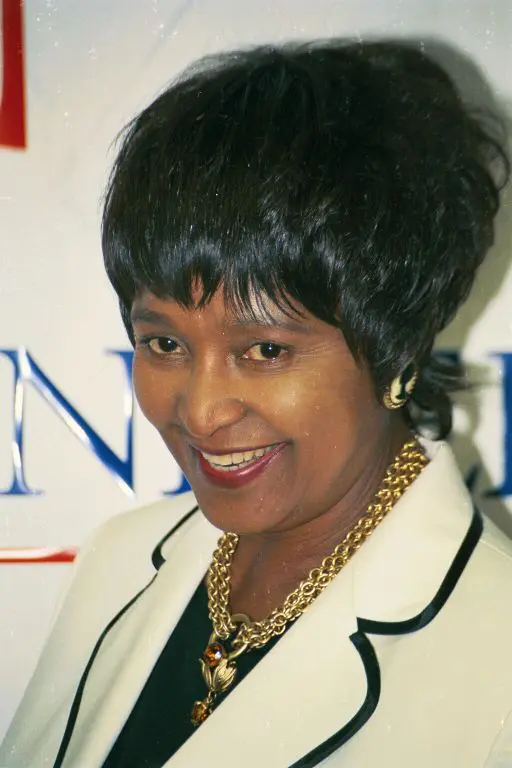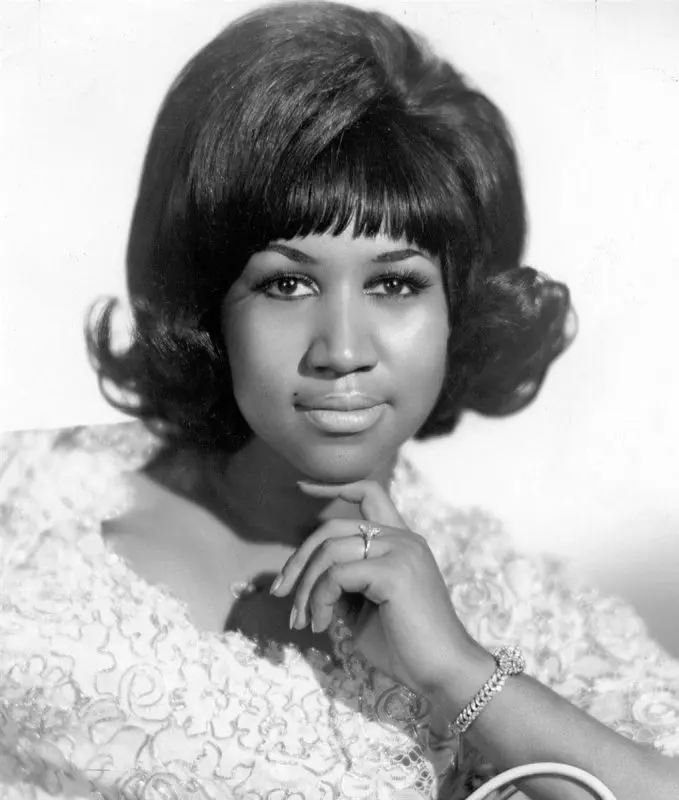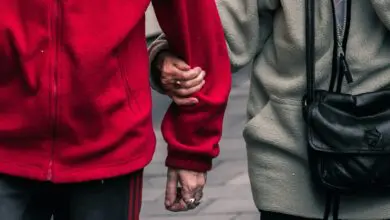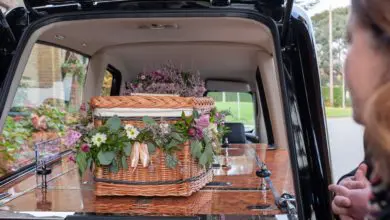Most talked about funerals of 2018

Register to get 1 free article
Reveal the article below by registering for our email newsletter.
Want unlimited access? View Plans
Already have an account? Sign in
Henry Vincent
Perhaps the most controversial incident of the funeral year, robber Henry Vincent was killed when attempting to burgle the house of an elderly couple. Police were called in to ensure the funeral cortege stayed away from the couple’s house, police were also required to ensure there were no fights at the funeral and that the cortege was not attacked by those who felt the funeral should have been kept further away from the place of the burglary.

Winnie Mandela
Winnie Mandela’s life was never far from controversy, despite being a key part of ending apartheid in South Africa, her Mandela United Football Club bodyguards were responsible for the murder of many politicians who opposed her. During her life Mandela was linked with 18 human rights violations and was certainly a divisive character. Her funeral mirrored her life in that it was engulfed in political disputes, the funeral welcomed members of most of South Africa’s main political parties. Arguments broke out among representatives of different parties and scuffles between funeral goers and police were reported. EFF leader Julius Malema was forced to deny allegations that he was involved in an assault that happened in the Fourways Memorial Park, where Mandela’s funeral was taking place.
The two funerals brought the topic of security at funerals into question with a police spokesperson telling Funeral Service Times just after the incident, that in the event of the funeral of a criminal or controversial character “the police will definitely be doing an assessment of what could be potential risks of disorder and crime and having a conversation with the organisers”. Police urged funeral directors to contact their local police service if they were planning on directing a “big funeral where crime was considered likely to happen”. Despite warnings from the police, the AOIC’s Phil Spicksley said he has never seen any violence at funerals which has meant that the events have had to be called off, however he did add that if the association ever saw a member was at risk through a potentially dangerous arrangement, “we would advise them not to conduct a ceremony”.

Vichai Srivaddhanaprabha
Vichai Srivaddhanaprabha
A death which shook the football world, Srivaddhanaprabha arguably masterminded Leicester City’s shock Premier League title win along with providing the city of Leicester with a large amount of investment in hospitals and other charitable causes. Srivaddhanaprabha died when his helicopter crashed after stalling in the air when taking off from the pitch of Leicester’s King Power Stadium as he had done from the majority of the club’s home matches.
Just hours after the incident a large tribute was created with football fans from across the world paying their respects to the Leicester City owner. Fans laid scarfs, shirts, photos and floral tributes around the stadium, which were then all moved to an area near the site of the tragedy with the help of over 200 volunteers. The following day the club erected a covered area near the tribute, with a book of condolence which could be signed by fans and players. The game following the owner’s death featured Leicester players Harry Maguire, Andy King, James Maddison, Matty James and Hamza Choudhury, leading supporters in a march to the stadium in honour of the chairman. Srivaddhanaprabha’s actual funeral took place in his home country, Thailand, however the tributes at Leicester served as a touching example of how someone’s life can be celebrated in multiple places where they have been highly important.
Davide Astori
Davide Astori’s death was perhaps one of the most unexpected deaths of the year, the 31 year old Fiorentina captain and Italian international footballer was found dead in his hotel room, with an autopsy revealing a cardiac arrest as his cause of death. Astori’s death led to mass tributes across Italy, representatives from all Serie A clubs were present at his funeral ceremony, which saw thousands of fans congregate outside the church singing his name, whilst audio of the service was played on speakers. His death saw Florence’s city government declare the day a day of mourning, with schools and businesses asked to observe a minute of silence at 12pm. Fiorentina’s vice captain Milan Badelj described Astori as “the son and the brother that everyone would like to have”, the city’s archbishop, Cardinal Giuseppe Betori said: “He has always been and will always be a Florentine”, despite this Astori was buried in Bergamo, where he grew up and where his parents still live.

Aretha Franklin
The ‘Queen of Soul’, Aretha Franklin died in August following a battle with a pancreatic neuroendocrine tumor (pNET). During her life, Franklin managed a 50 year music career, recording 20 Top 10 albums, a 12 million-selling singles and earned no fewer than 18 Grammy awards. Franklin began her career by singing in a church choir at the age of six, before being named ‘the greatest singer of all time’ by Rolling Stone magazine. Throughout her career Franklin and her music became iconic to both the feminist and civil rights movements in the United States.
Franklin’s funeral unfortunately proved controversial, despite performances from stars including Ariana Grande, Stevie Wonder and Chaka Khan. The first widely reported incident at Franklin’s funeral saw Bishop Charles H Ellis III accused of groping Grande after introducing her by saying “when I saw Ariana Grande on the program, I thought that was a new something at Taco Bell”. The bishop apologised for both his actions and comments firstly by saying: “I hug all the female artists and the male artists. Everybody that was up, I shook their hands and hugged them. That’s what we are all about in the church. We are all about love. The last thing I want to do is to be a distraction to this day. This is all about Aretha Franklin.”
The bishop then addressed his “Taco Bell” comments, adding: “I personally and sincerely apologise to Ariana and to her fans and to the whole Hispanic community. When you’re doing a program for nine hours you try to keep it lively, you try to insert some jokes here and there.”
The second incident saw Franklin’s family call the eulogy delivered by Reverend Jasper Williams Jr, “offensive and distasteful” adding that they felt he “did not properly eulogise her”. During his 50 minute speech Williams said “black lives must not matter until black people start respecting black lives and stop killing ourselves”, he went on to criticise black families saying “there are not fathers in the home no more” before going on to say a black woman could not raise a black boy to be a man. The comments in the context of Franklin’s funeral were thought to be considered more offensive given that she was a single mother of four boys. Those in the congregation could be heard saying “talk about Aretha” while the ceremony was ongoing.
The incidents raised awareness of ensuring that the correct funeral professionals are selected to perform various celebrant duties, and to ensure the legacy of the deceased is respected.
Genoa Bridge Collapse
One of the most tragic events of the year saw Genoa’s Morandi Bridge collapse under the weight of traffic causing it to plunge 45m along with many cars, killing 43 people. The incident was the fifth Italian bridge collapse in five years, with the Italian government blaming management company Autostrade for making large profits and failing to invest in maintenance. Just under half of the victims of the disaster were honoured in a state funeral with Italian president Sergio Mattarella and prime minister Giuseppe Conte leading the ceremony. The rest of the victims opted for private funerals, many out of anger at the government with some relatives angry at the presence of government officials at funerals. At the state ceremony grieving relatives gathered in a hall in Genoa where rows of coffins were laid out, mourners embraced and prayed, along with placing photographs and flowers on the coffins of their loved ones. A national day of mourning was announced and led by the Archbishop of Genoa, Cardinal Angelo Bagnasco. The funeral brought the issue of divided ideas on what should happen to commemorate the deceased on to the front pages, where the debate was held on a national scale.
This feature first appeared in the January 2019 issue of Funeral Service Times







